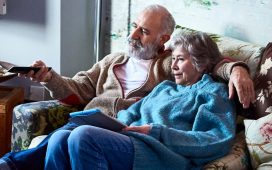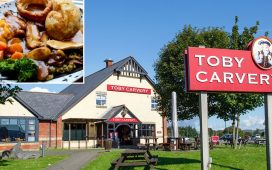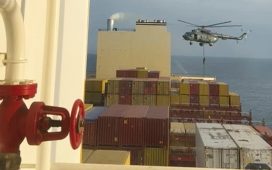The government is set to hire food service companies to produce boxes of groceries for vulnerable people who are self isolating because of the coronavirus pandemic.
Brakes and Bidfood are among the companies working with the Department for the Environment, Food and Rural Affairs on a scheme that will prioritise food deliveries to some of the 1.5m people who are deemed by the authorities to be vulnerable.
These companies supply food in bulk to the catering trade — cafés, pubs and restaurants — but have significant amounts of spare product after Boris Johnson’s move to shut down much of the hospitality industry because of the coronavirus crisis.
It contrasts with the position of the supermarket groups, which are contending with a huge surge in demand because people have responded to the outbreak by stockpiling food and household products such as toilet paper.
The Institute for Grocery Distribution, a charity that has helped co-ordinate the environment department’s planned scheme for getting groceries to vulnerable people, said two food service companies were “working on an offer . . . to manage the sourcing and distribution of food parcels to the doorsteps of society’s most vulnerable people”.
Brakes and Bidfood confirmed they were involved, though they cautioned that details of the scheme had not been finalised. But the outline of the scheme could be ready by the end of the week, according to two people briefed on the talks.
Government officials said the food service companies’ production of boxes of groceries for vulnerable people would run in parallel with supermarket groups’ online operations.
Distribution of the boxes commissioned by the environment department could be overseen by so-called local resilience forums — partnerships made up of representatives from the emergency services, councils, the National Health Service and others — and delivered to homes by the armed forces.
The 1.5m people identified as vulnerable by the authorities will be contacted this week using data about their medical histories from the NHS, general practitioners and local authorities.
The government hopes some of the 1.5m will be able to rely on other family members or neighbours to do their shopping. Those who cannot will be invited to call the authorities and confirm whether they would like food, medicines or other supplies.
Any food they receive is expected to be in the form of “essentials boxes” like those introduced this week by Wm Morrison, the UK’s fourth biggest supermarket. They are priced at £35 including courier delivery and contain a mix of tinned and packet goods, fresh meat, vegetables and milk, plus household products.
The environment department is not planning to direct supermarket groups to help with the supply of food to vulnerable people. But the department is proposing to share data with the groups about the people identified as vulnerable so they can prioritise deliveries.
One person close to a big supermarket group said it was “very complex” to work out who was in genuine need. This person added that integrating government data with its own system “throws up all sorts of practical and data protection problems”.
In his televised address on Monday setting out severe curbs on people’s movement, Mr Johnson called on Britons to order food and other essentials online if they were able to. But supermarket groups have admitted their online operations are struggling to keep pace with demand after customers began stockpiling.
Ocado, the online supermarket group, suspended its website last week in order to introduce functionality that limits customers to one delivery slot per week. The website is now running again, but is operating a queuing system and not accepting new orders until March 29.












